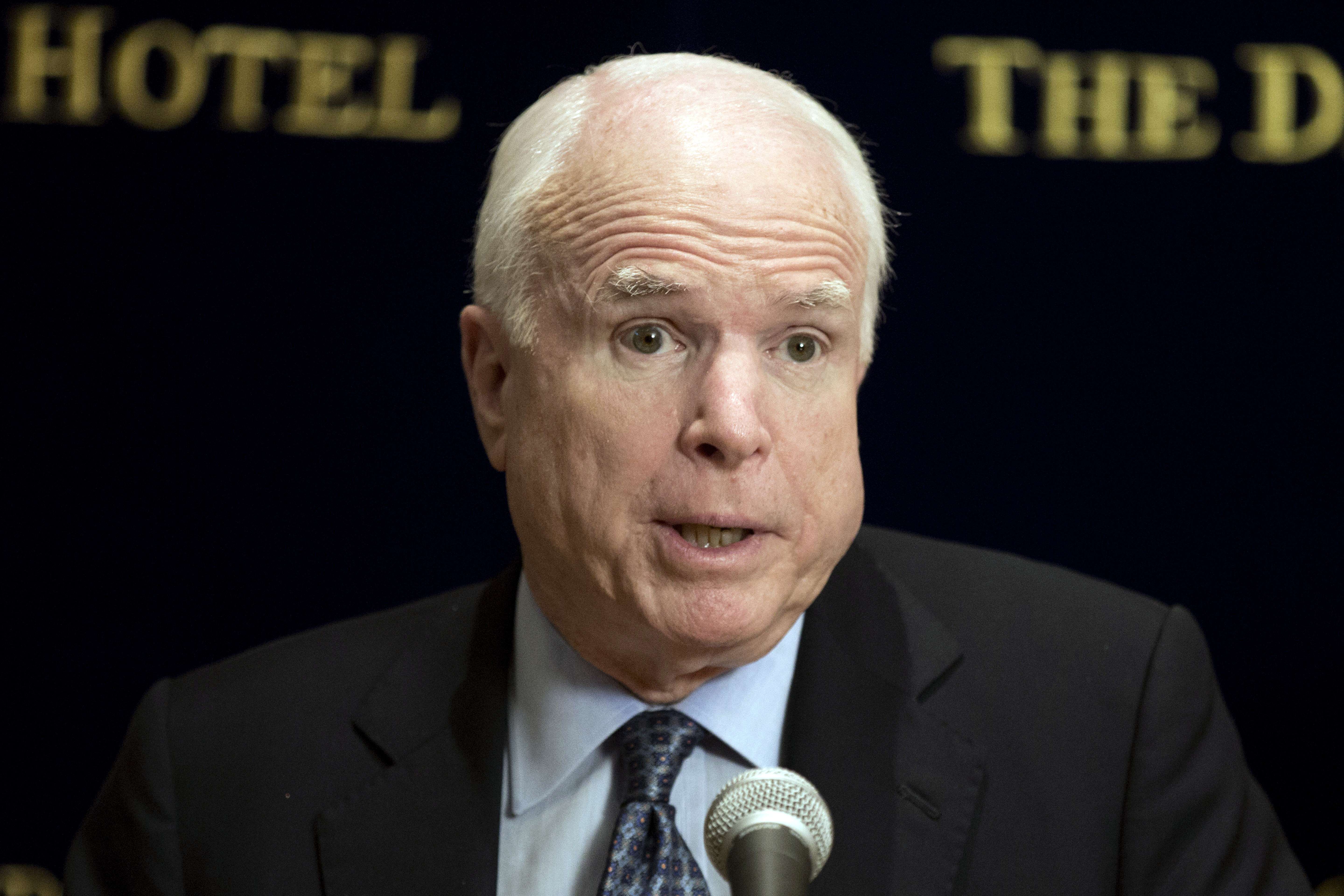
Washington: Asserting that the US and India face mutual security threats and a robust defence partnership is in the interest of both countries, a top Republican Senator has moved a legislation asking the president to recognise India as America's "global strategic and defence partner".
Seeking necessary modifications to defence export control regulations, the legislative amendment to the National Defence Authorisation Act (NDAA) 2017 was introduced by John McCain, who is Chairman of the Senate Armed Services Committee.
The move came a day after Prime Minister Narendra Modi in his address to a joint session of the Congress called for greater defence cooperation between the two countries.
As per the Senate Amendment 4618, it is the sense of the Congress that the US and India face mutual security threats, and a robust defence partnership is in the interest of both countries.
The amendment says that the relationship between the US and India has developed over the past two decades to become a multifaceted, global strategic and defence partnership rooted in shared democratic values and the promotion of mutual prosperity, greater economic cooperation, regional peace, security and stability.
As such it asked the president to such actions as may be necessary "to recognise the status of India as a global strategic and defence partner" of the US through appropriate modifications to defence export control regulations.
"The commitment of the president to enhancing defence and security cooperation with India should be considered a priority in advancing the interests of the United States in South Asia and the Indo-Pacific region," it said. The NDAA 2017 is slated to come for voting in the Senate next week. The Republican Party has a majority in the Senate.
The amendment urges the president to strengthen the effectiveness of the US-India Defence Technology and Trade Initiative and the durability of the "India Rapid Reaction Cell" of the Department of Defence.
It also asks the US president to approve and facilitate the transfer of advanced technology in the context of, and in order to satisfy, combined military planning with the India military for missions such as humanitarian assistance and disaster relief, counter piracy and maritime domain awareness.
It asks for resolving issues impeding defence trade, security cooperation, and co-production and co-development opportunities between the US and India.
Under the legislation the US president is asked to collaborate with India to develop mutually agreeable mechanisms to verify the security of defence technology information and equipment such as tailored cyber security and end-use monitoring arrangements.
The Administration is urged to promote policies that will encourage the efficient review and authorisation of defence sales and exports to India, including the treatment of military sales and export authorisations to India in a manner similar to that of the closest defence partners of the US. Seeking to pursue greater government-to-government and commercial military transactions between the US and India, it asks the president to support the development and alignment of the export control and procurement regimes of India with those of America and multilateral control regimes.
It urges the US president to encourage coordination with India on an ongoing basis to develop and keep updated military contingency plans for addressing threats to the mutual security interests of both countries.
The legislative amendment asks the president to work toward actions and joint efforts such as significant contributions to ongoing global conflicts, that would allow the US to treat India the same as its closest partners and allies with respect to American laws and regulations.
On an ongoing basis the president will carry out an assessment of the extent to which India possesses capabilities to execute military operations of mutual interest between the US and India.
The Congress, as per this amendment, feels that the defence partnership between the US and India is vital to regional and international stability and security, and that the national security interests of America can be furthered by advancing the goals of the framework for the US-India Defence Relationship and the effective operation of the US-India Defence Technology and Trade Initiative.
Given the bipartisan nature of support to India US defence ties and that it has been introduced by McCain himself, the legislation is expected to be passed.
A similar legislative move has been made in the House of Representatives too.